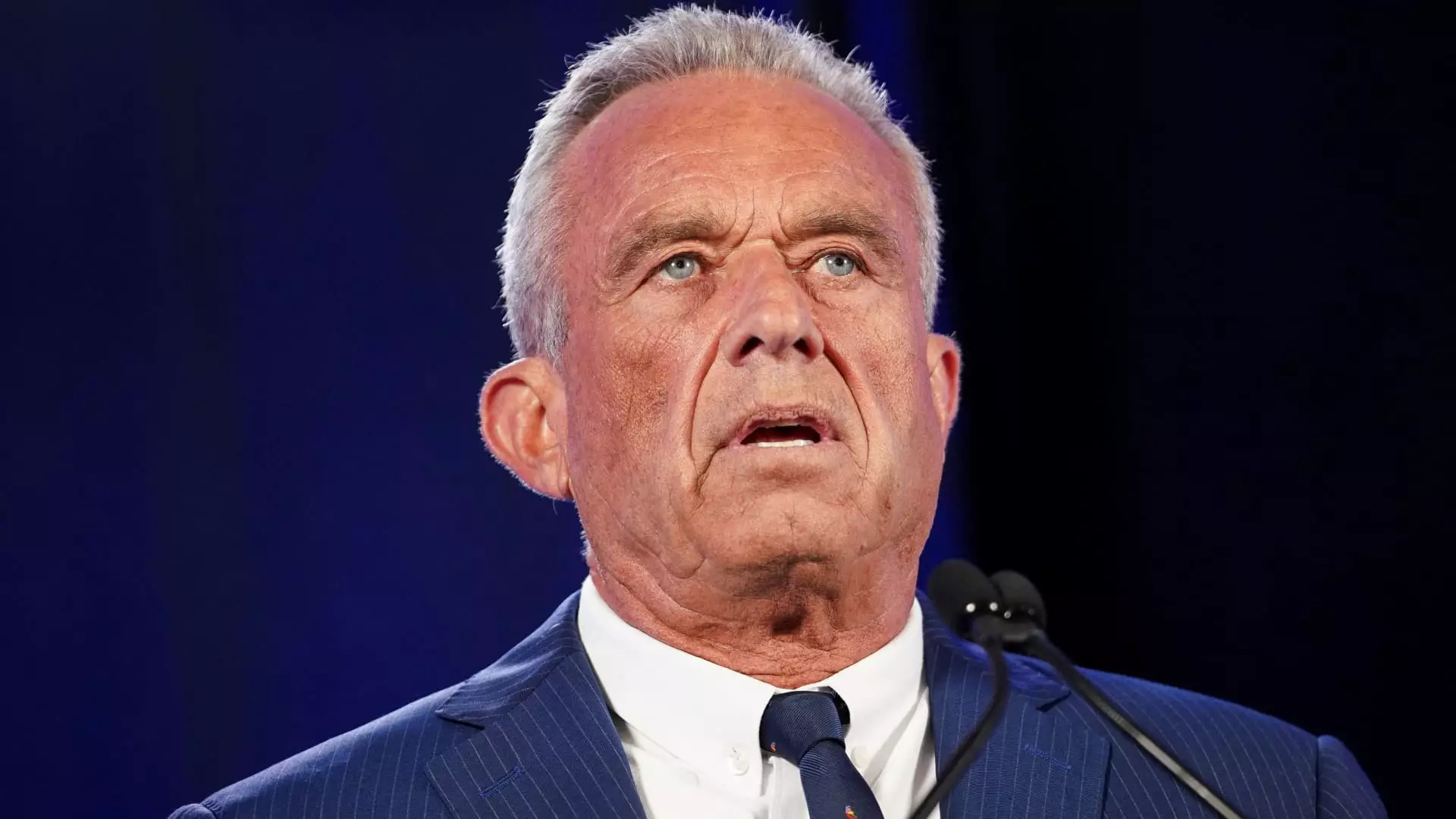In a recent ruling by the Michigan Supreme Court, former independent presidential candidate Robert F. Kennedy Jr. was allowed to appear on the ballot in Michigan for the upcoming November election. This decision came as a surprise after the state’s Court of Appeals had initially removed Kennedy from the ballot, against the wishes of Michigan Secretary of State Jocelyn Benson. The majority decision by the high court to keep Kennedy on the ballot was supported by five out of the seven justices who considered the case. This ruling could potentially impact the national candidacy of Democratic nominee Vice President Kamala Harris, giving her an edge over GOP nominee former President Donald Trump in the state.
Kennedy’s decision to suspend his campaign and pledge support for Trump added a layer of complexity to the situation, leading to a legal battle with Benson over his name appearing on Michigan’s ballot. The court cited Michigan law, which prohibits minor party candidates who accept a nomination from withdrawing from an election. While the majority in the Michigan Supreme Court ruled in favor of keeping Kennedy on the ballot, dissenting justices argued that this decision deprived voters of a choice between actual candidates who are willing to serve if elected. The dissenters highlighted the potential national implications of the ruling on the outcome of the presidential race, raising concerns about the impact on the electorate and the democratic process.
Impact on Electoral College Votes and Swing States
Michigan’s 15 votes in the Electoral College play a crucial role in determining the winner of the U.S. presidential elections. The state is considered a key swing state, alongside Pennsylvania, with the power to sway the overall outcome of the election. Kennedy’s attempt to remove his name from ballots in swing states, including Michigan, reflects the strategic considerations at play in the presidential race. The court’s decision to allow Kennedy to remain on the ballot could potentially shift the dynamics of the race in Michigan, affecting the distribution of electoral votes and the overall competitiveness of the election.
Legal Challenges in Other States
In addition to Michigan, Kennedy faced legal challenges in other states such as Wisconsin and North Carolina, where officials denied his request to remove his name from the ballots. However, a North Carolina appeals court ruled in favor of Kennedy, halting the mailing out of ballots with his name. The legal battle in Wisconsin is still ongoing, with a judge yet to make a ruling on Kennedy’s lawsuit. The differing outcomes in various states raise questions about the consistency of election laws and procedures across different jurisdictions, leading to uncertainty and potential confusion among voters.
Kennedy’s decision to withdraw his name from ballots in certain battleground states, while contesting the decision in others, reflects the strategic calculations involved in the presidential race. Polling data suggests that Harris’ lead over Trump narrows in a head-to-head matchup in Michigan, Wisconsin, and North Carolina, underscoring the importance of minor party candidates like Kennedy in shaping the electoral landscape. The outcome of the legal battles and the final composition of the ballots in these states could have significant implications for the overall outcome of the election and the distribution of electoral votes.
The Michigan Supreme Court’s ruling on Robert F. Kennedy Jr.’s ballot controversy raises important questions about the intersection of legal principles, political strategies, and electoral outcomes in the context of a highly competitive presidential race. The decision to allow Kennedy to remain on the ballot in Michigan has sparked debate and speculation about its potential impact on the national candidacy of Vice President Kamala Harris and the re-election prospects of former President Donald Trump. As the election approaches, the outcome of these legal battles and the final composition of the ballots in key swing states will shape the trajectory of the race and determine the eventual winner of the presidency.



Leave a Reply